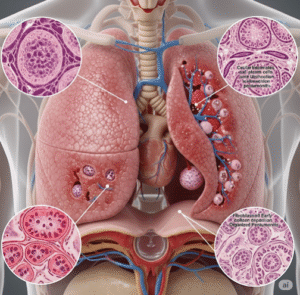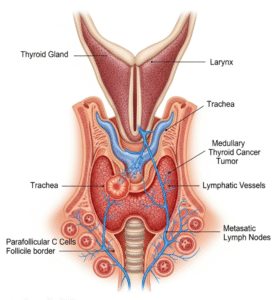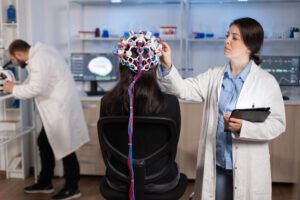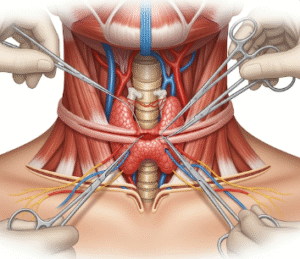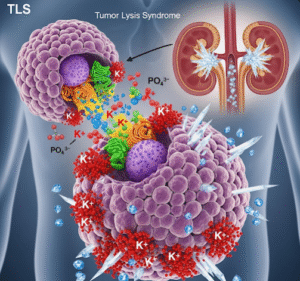Overview
Opioid Use Disorder (OUD) is a chronic, relapsing medical condition characterized by the compulsive use of opioids despite harmful consequences. It involves both physical dependence and psychological addiction and significantly affects health, relationships, and quality of life. OUD can result from the misuse of prescription opioids (like oxycodone, hydrocodone, and morphine) or the use of illicit opioids (like heroin or synthetic fentanyl). Early diagnosis and comprehensive treatment are critical for long-term recovery and preventing overdose.
What is Opioid Use Disorder?
Opioid Use Disorder is defined by the persistent use of opioids in a way that leads to distress or impairment, as outlined by the Diagnostic and Statistical Manual of Mental Disorders (DSM-5). It includes a range of behaviors such as:
- Using larger amounts than intended
- Failed attempts to reduce or stop use
- Spending excessive time obtaining or using opioids
- Strong cravings and urges to use
- Neglecting responsibilities or social activities
- Continuing use despite negative effects on health or life
- Developing tolerance and experiencing withdrawal
OUD is a complex brain disorder influenced by genetics, environment, and repeated opioid exposure.
Symptoms
Common signs and symptoms of Opioid Use Disorder include:
- Taking opioids in higher doses or for longer than prescribed
- Inability to control or stop use
- Craving or strong desire to use opioids
- Isolation from friends and family
- Drowsiness, confusion, or mood swings
- Poor work or academic performance
- Financial or legal problems related to drug use
- Physical dependence and withdrawal symptoms
Causes
OUD often develops after repeated exposure to opioids, which alter the brain’s reward system and reduce the body’s natural pain control mechanisms. Contributing factors include:
- Prolonged use of prescription opioids
- Use of opioids for non-medical purposes
- Trauma or stress-related disorders
- Mental health conditions like depression or anxiety
- Genetic predisposition to addiction
- Environmental influences, such as peer pressure or social exposure
Risk Factors
Several factors increase the risk of developing Opioid Use Disorder:
- Long-term use of opioid pain medications
- History of substance abuse or addiction
- Family history of addiction
- Chronic pain or injury
- Mental illness (e.g., PTSD, depression)
- Low socioeconomic status or unstable living conditions
- Lack of access to education or addiction support services
Complications
If left untreated, OUD can result in serious and life-threatening complications:
- Overdose and death
- Infectious diseases, such as HIV or hepatitis (from injection drug use)
- Legal issues, incarceration, or job loss
- Mental health deterioration, including suicidal thoughts
- Chronic health issues, including liver, heart, or lung damage
- Strained relationships and social isolation
- Poor quality of life and reduced life expectancy
Prevention
Preventing OUD requires a combination of responsible prescribing, education, and community support:
- Use non-opioid treatments for chronic pain whenever possible
- Prescribe opioids at the lowest effective dose and duration
- Educate patients on the risks of opioid dependence
- Monitor for early signs of misuse or dependence
- Securely store and dispose of unused medications
- Support mental health and substance abuse prevention programs
- Increase access to harm reduction tools, such as naloxone
Treatment Options in Korea
South Korea is enhancing its national approach to opioid addiction through integrated, evidence-based treatments. Treatment for Opioid Use Disorder generally includes:
- Medication-Assisted Treatment (MAT):
- Buprenorphine and methadone help reduce cravings and withdrawal
- Naltrexone blocks opioid receptors to prevent relapse
- Detoxification: Medical management of withdrawal symptoms
- Cognitive Behavioral Therapy (CBT) and counseling: To address psychological triggers and change behavior
- Support groups: Including 12-step programs or peer-based recovery communities
- Dual diagnosis treatment: For individuals with co-occurring mental health disorders
- Inpatient or outpatient rehabilitation: Depending on the severity of addiction
Major hospitals and addiction centers in South Korea, such as the National Center for Mental Health, Seoul National University Hospital, and Yonsei Severance Addiction Clinic, offer multidisciplinary care for OUD. Increasing awareness and government support are helping to expand access to medications, therapy, and long-term recovery services.



